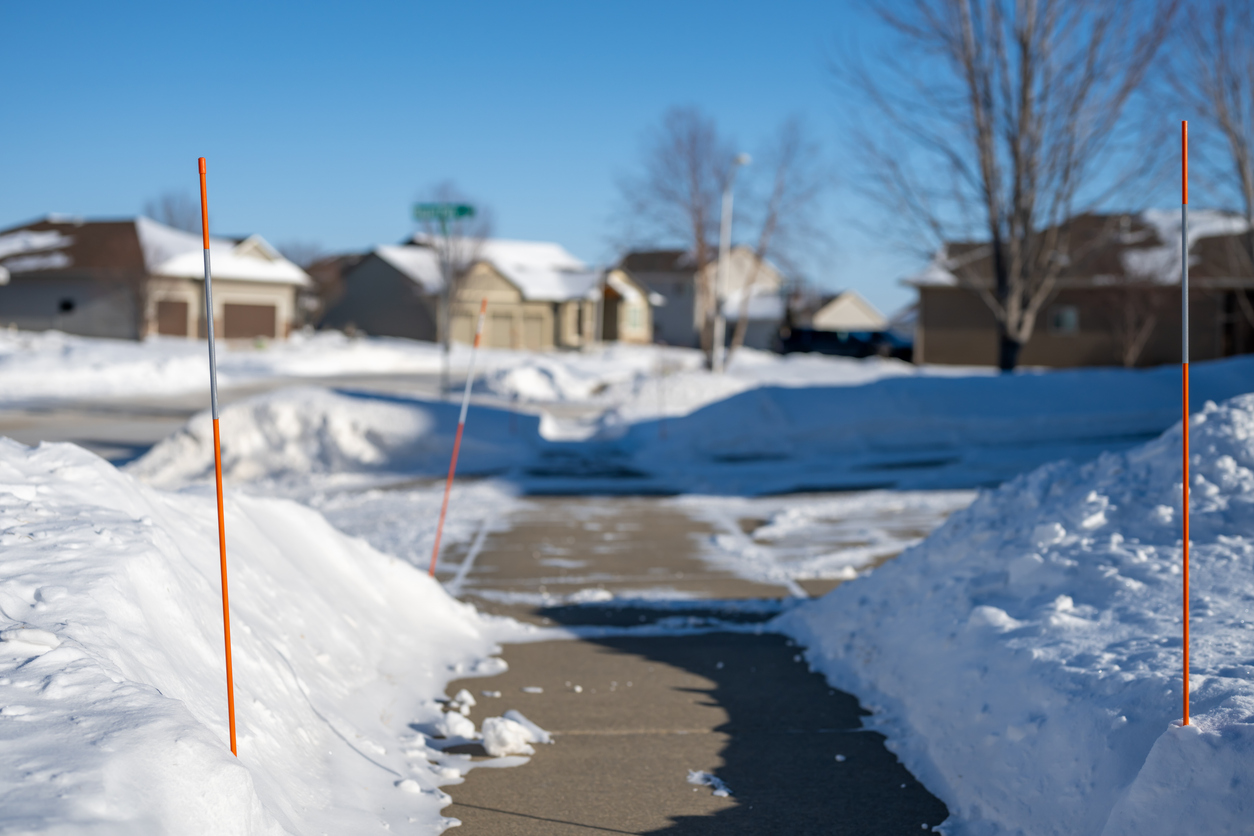
Winter brings unique challenges for homeowners associations (HOAs), making HOA risk mitigation a top priority during these colder months.
Because seasonal risks can lead to significant claims and liabilities, insurance agents should take the lead in preparing their HOA clients for these challenges to minimize the potential impact of winter hazards.
Identifying Winter Risks for HOAs
Winter months pose numerous risks for HOAs. The following are just some of them.
- Icy walkways: Over 70% of American residents live in areas that average 5 inches of snow per year. Snow and ice buildup can make walkways hazardous, increasing the risk of slip-and-fall incidents for residents.
- Heavy snowfall: Accumulated snow can lead to structural damage, especially to roofs and other vulnerable parts of the property.
- Burst pipes: Cold temperatures can cause pipes to burst, resulting in severe water damage to HOA-managed properties.
Insurance agents need to work closely with their HOA clients to ensure they understand these risks and take steps to mitigate them. By identifying the full scope of winter hazards, agents can better support their clients in reducing their exposure to potential claims and liabilities during this challenging season.
Winterizing HOA Common Areas: Key Considerations
Proper preparation is key to HOA risk mitigation during winter, and that starts with winterizing common areas in their properties. Here are some tips for your HOA clients.
Review and Reinforce Safety Protocols
Ensure that safety measures are in place, such as posting warning signs for icy conditions and conducting regular safety inspections.
Arrange for Snow Removal Services
Make sure contracts are in place for timely snow and ice removal, reducing the risk of accidents.
Inspect Roofs, Gutters, and Building Exteriors
Have roofs and gutters checked for potential damage or vulnerabilities that could be exacerbated by heavy snow or ice accumulation. Inspecting the exteriors of their buildings and pavements can also help them prepare for any structural damage.
These proactive steps can help prevent accidents, minimize the risk of property damage, and ultimately reduce HOAs’ liability exposure.
Updating Insurance Coverage for Seasonal Risks
Apart from the steps above, winter risk mitigation also involves making sure that your HOA clients’ insurance coverages are up to date and reflect winter-specific risks.
Agents should also pay close attention to any exclusions that might apply during the winter season and address these with their clients. For example, making sure that property and casualty coverage is sufficient to cover potential damages from severe weather is crucial for comprehensive HOA risk mitigation.
By staying proactive, agents can ensure their HOA clients are well-prepared for whatever winter may bring.
Empowering HOAs With Risk Mitigation Strategies
Winter risk mitigation is an ongoing process, and insurance agents play a vital role in guiding their HOA clients through it.
By providing practical steps to prepare for winter hazards and ensuring comprehensive insurance coverage, agents help their clients protect both their community and their financial stability.
So, encourage your HOA clients to take proactive measures and prioritize risk mitigation this winter. Contact Kevin Davis Insurance Services to learn how we can help you provide tailored insurance solutions that safeguard your clients against seasonal hazards.
About Kevin Davis Insurance Services
For over 35 years, Kevin Davis Insurance Services has built an impressive reputation as a strong wholesale broker offering insurance products for the community association industry. Our president Kevin Davis and his team take pride in offering committed services to the community association market and providing them with unparalleled access to high-quality coverage, competitive premiums, superior markets, and detailed customer service. To learn more about the coverage we offer, contact us toll-free at (855)-790-7393 to speak with one of our representatives.


